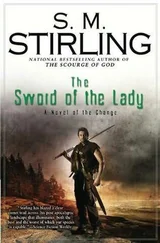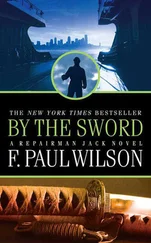Paul Christopher - The Sword of the Templars
Здесь есть возможность читать онлайн «Paul Christopher - The Sword of the Templars» весь текст электронной книги совершенно бесплатно (целиком полную версию без сокращений). В некоторых случаях можно слушать аудио, скачать через торрент в формате fb2 и присутствует краткое содержание. Жанр: Триллер, на английском языке. Описание произведения, (предисловие) а так же отзывы посетителей доступны на портале библиотеки ЛибКат.
- Название:The Sword of the Templars
- Автор:
- Жанр:
- Год:неизвестен
- ISBN:нет данных
- Рейтинг книги:3 / 5. Голосов: 1
-
Избранное:Добавить в избранное
- Отзывы:
-
Ваша оценка:
- 60
- 1
- 2
- 3
- 4
- 5
The Sword of the Templars: краткое содержание, описание и аннотация
Предлагаем к чтению аннотацию, описание, краткое содержание или предисловие (зависит от того, что написал сам автор книги «The Sword of the Templars»). Если вы не нашли необходимую информацию о книге — напишите в комментариях, мы постараемся отыскать её.
The Sword of the Templars — читать онлайн бесплатно полную книгу (весь текст) целиком
Ниже представлен текст книги, разбитый по страницам. Система сохранения места последней прочитанной страницы, позволяет с удобством читать онлайн бесплатно книгу «The Sword of the Templars», без необходимости каждый раз заново искать на чём Вы остановились. Поставьте закладку, и сможете в любой момент перейти на страницу, на которой закончили чтение.
Интервал:
Закладка:
“I know,” said Holliday. “I can’t figure that out either.”
Two hours later the big, wide-body jet landed at Ponta Delgada Airport on the island of Sгo Miguel. It was small, fewer than fifty thousand people, a city of churches and fine seventeenth- and eighteenth-century buildings reflecting the island chain’s rich past as the staging base for virtually anyone hoping to reach the riches of the New World. For the most part it was now a city of tourists.
They booked in to the Hotel do Colйgio in the town center, ate a tasty bouillabaisse of various unidentified bits of seafood to counteract the cheese sandwich and the Fanta, and then went to bed, reconvening at the breakfast buffet the following morning. Once again the weather outside was perfect: clear skies, bright sunshine, and a cool onshore breeze coming in off the bay.
“So what’s the plan?” Peggy asked, starting on her second cinnamon roll. “Get some spades and start digging up the beach?”
“Caves,” said Holliday. He sipped his chбvena quente-black coffee, very strong. “It’s the only thing that makes sense.”
“Are there any caves in the Azores?”
“Lots of them,” said Holliday. “The islands are all volcanic; there are lava tubes everywhere.”
“So how do we figure out where to look?”
“Logic,” Holliday answered. “Most of the caves here are famous; they even had a convention of cave explorers here once or so the guide book says.”
“Ergo?”
“Ergo we find the caves that no one’s ever explored before, which means going to Corvo, the smallest of the islands and the most remote.” Holliday smiled. “Not to mention the fact that Corvo is also known as ‘Pequeno Rocha,’ the ‘Little Rock.’ ”
“So how do we get to this little rock of yours?”
“There’s a plane you can take, but I’d rather see it from the sea the way Roger de Flor must have. We need a boat.”
29
The Azores are a volcanic archipelago of nine major islands in the North Atlantic a thousand miles from Lisbon and twelve hundred miles from St. John’s, Newfoundland. During the age of New World exploration between the fifteenth and seventeenth centuries, the string of islands provided a perfect way station for ships heading west or returning to Europe on the easterly trade winds. There are three major population centers on the islands: Ponta Delgada on the island of Sгo Miguel, Angra do Heroнsmo on the island of Terceira, and Horta on the island of Faial. There has been volcanic activity in the Azores as recently as a hundred years ago.
The westernmost island in the group is Corvo, barely six and a half square miles in size. There is one small village on the island, Vila Nova do Campo, with a population of approximately three hundred people. Corvo, the Little Rock, is essentially nothing more than a collapsed volcanic cone or “caldera.” The island’s only occupation is farming. Half of the time the island is shrouded in fog, the caldera hidden by low-lying clouds. The northernmost end of the island, hammered by an unrelenting Atlantic, is a ring of surf-shattered cliffs rising up the steep slopes of the old volcano.
There is one guesthouse with seven rooms, one restaurant, one bar, and an open-air barbecue which shares a small walled-in pasture with a motley, ill-tempered herd of goats. Corvo is fifteen nautical miles from Flores, its immediate neighbor, and a hundred and thirty-five miles from Horta, the nearest town of any size.
On the afternoon of their first full day in the Azores Holliday and Peggy took the short-hop commuter flight from Ponta Delgada to Faial and went searching for a boat to take them to Corvo the following morning.
Horta turned out to be a hilly little town of fifteen thousand built around two small bays that make up the port and divided by yet another volcanic crater. There is a sports bar, some appropriately charming restaurants and craft shops, and the occasional second-level cruise ship snuggled up to the fairly modern concrete pier and breakwater.
The most notable visitor to Horta was Mark Twain, who stayed there briefly in the early stages of his long journey to Jerusalem in 1867. Setting foot in the town he was immediately assaulted by a throng of barefoot beggar children who haunted his every step for the next two days. He never came back.
The boat, when they found it, was an old Chris-Craft 38’ Commander from the sixties, and looked eerily like the raggedy vessel piloted by Humphrey Bogart in the movie version of Ernest Hemingway’s To Have and Have Not. It smelled of fish and beer, needed a paint job and was named the San Pedro.
Her owner and captain was a man named Manuel Rivero Tavares. Tavares smelled like the boat and looked like a bowling ball with a two-day growth of stubble, but by all reports he was the best and most knowledgeable charter-boat captain in Horta.
“Why you want to go to Corvo?” Tavares asked. “No food there, no hootchie-hootchie nightclub with Michael Jackson. No nothing. Not even no fish.” According to the men drinking in Peter’s Sports Bar in town, Capitano Tavares was the finest white marlin fisherman in all of the Azores.
“We don’t want food or hootchie-hootchie night-clubs, and we don’t want Michael Jackson,” said Holliday. “We want to see it from the ocean the way the old explorers did.”
“Old explorers are dead,” replied Capitano Tavares. “All of them.”
“I know that,” said Holliday. “How much to take us to Corvo?”
“If you are not liking hootchie-hootchie and not liking fishing what will we talk about? A long way to Corvo. One hundred thirty-five nautical miles. Seven, eight hours to get there, seven, eight hours to get back. Long time.” The captain didn’t look happy.
“We don’t have to talk about anything,” sighed Holliday. “How much?”
“Manuel Tavares likes to talk,” said the captain, frowning.
“How much?”
“A thousand euro.”
“Five hundred.”
“Seven hundred and fifty.”
“Seven hundred.”
“You will pay the gasoline?”
“Yes.”
“Beer?”
“Yes.”
“Seven hundred twenty-five. I cook you an’ your little sister-girlie nice fish stew.”
“Deal.”
Two hours later, stocked with food and a case of the captain’s favorite Sagres Branca beer, they motored slowly out of the port, turning around the long breakwater then swinging sharply around the remains of the old volcano before heading west along the rugged coastline of the island, bearing a little north into the open sea, heading toward Corvo.
Peggy had taken Holliday’s Bradt guide and was sunning herself on the forward deck while Holliday sat beside Capitano Tavares in the companion chair on the flybridge high above the main deck of the boat. The San Pedro was doing a steady eighteen knots, muscling easily through the gentle swell. The sea was dark blue, almost a steely black. A few petrels whirled and dipped in their wake, but except for the birds they were alone on the ocean.
Far ahead on the distant horizon Holliday could see a broadening line of dark clouds gathering. They were heading into a storm. It occurred to him that the weather had been absolutely perfect ever since he’d left West Point. The closest thing to a problem had been the fog approaching Friedrichshafen. From the looks of the sky ahead, that was about to change.
“Storm coming,” commented Holliday.
Tavares took the bottle of beer out of its polystyrene holder in front of him and sucked on the neck for a few seconds. He gave a little belch and put the bottle back in its holder.
“Long time yet,” he said. “Manuel Tavares knows these things.” He turned and smiled. He poked himself in the eye. “Captain Jack Sparrow has no need to worry, yes?” He laughed at his own joke. “That Johnny Depp, he’s a funny guy, no?” He laughed again. “What kind of name is that-Depp? Something you put in the hair to make it shiny, yes? Depp! Ha!”
Читать дальшеИнтервал:
Закладка:
Похожие книги на «The Sword of the Templars»
Представляем Вашему вниманию похожие книги на «The Sword of the Templars» списком для выбора. Мы отобрали схожую по названию и смыслу литературу в надежде предоставить читателям больше вариантов отыскать новые, интересные, ещё непрочитанные произведения.
Обсуждение, отзывы о книге «The Sword of the Templars» и просто собственные мнения читателей. Оставьте ваши комментарии, напишите, что Вы думаете о произведении, его смысле или главных героях. Укажите что конкретно понравилось, а что нет, и почему Вы так считаете.











